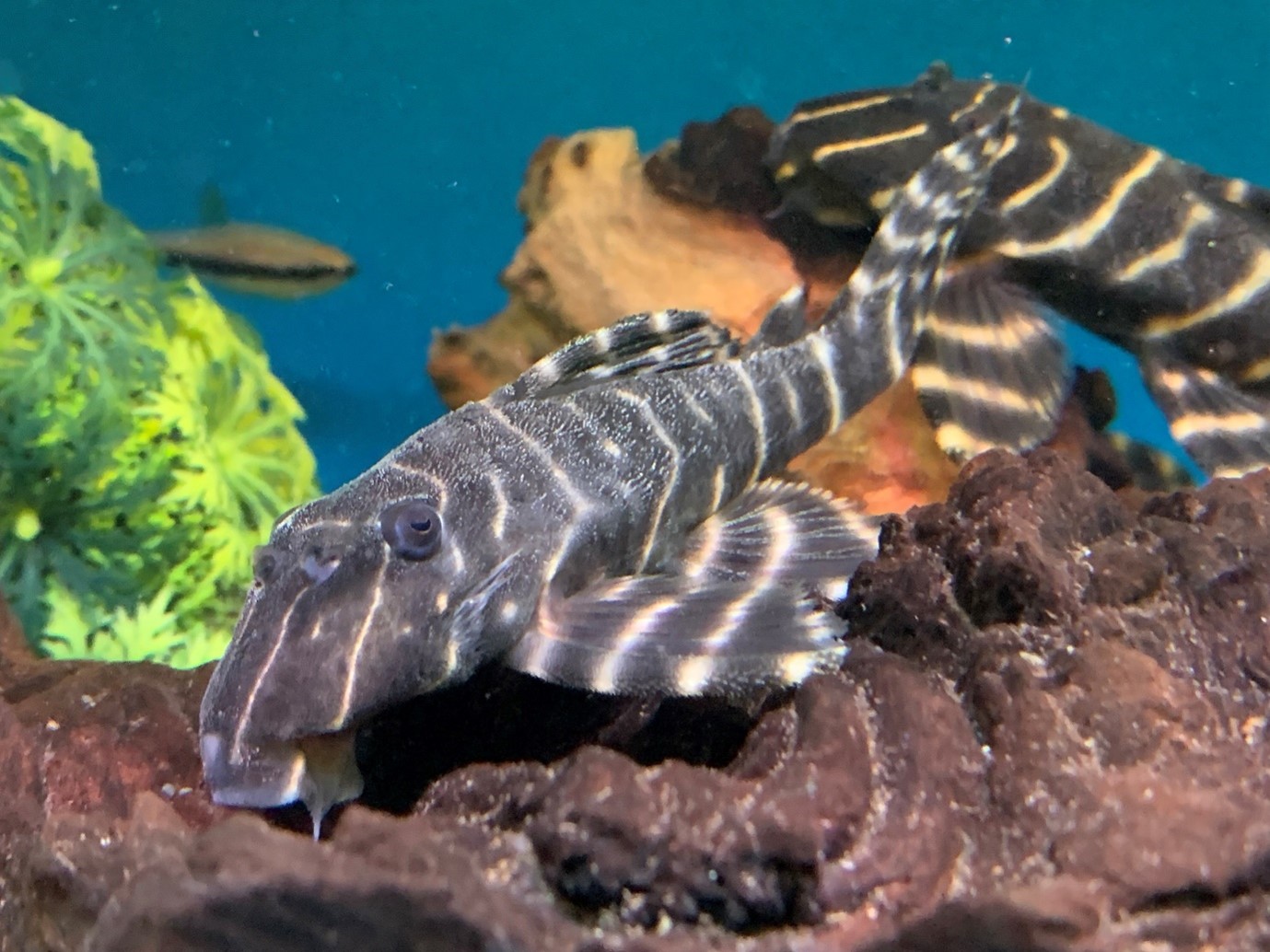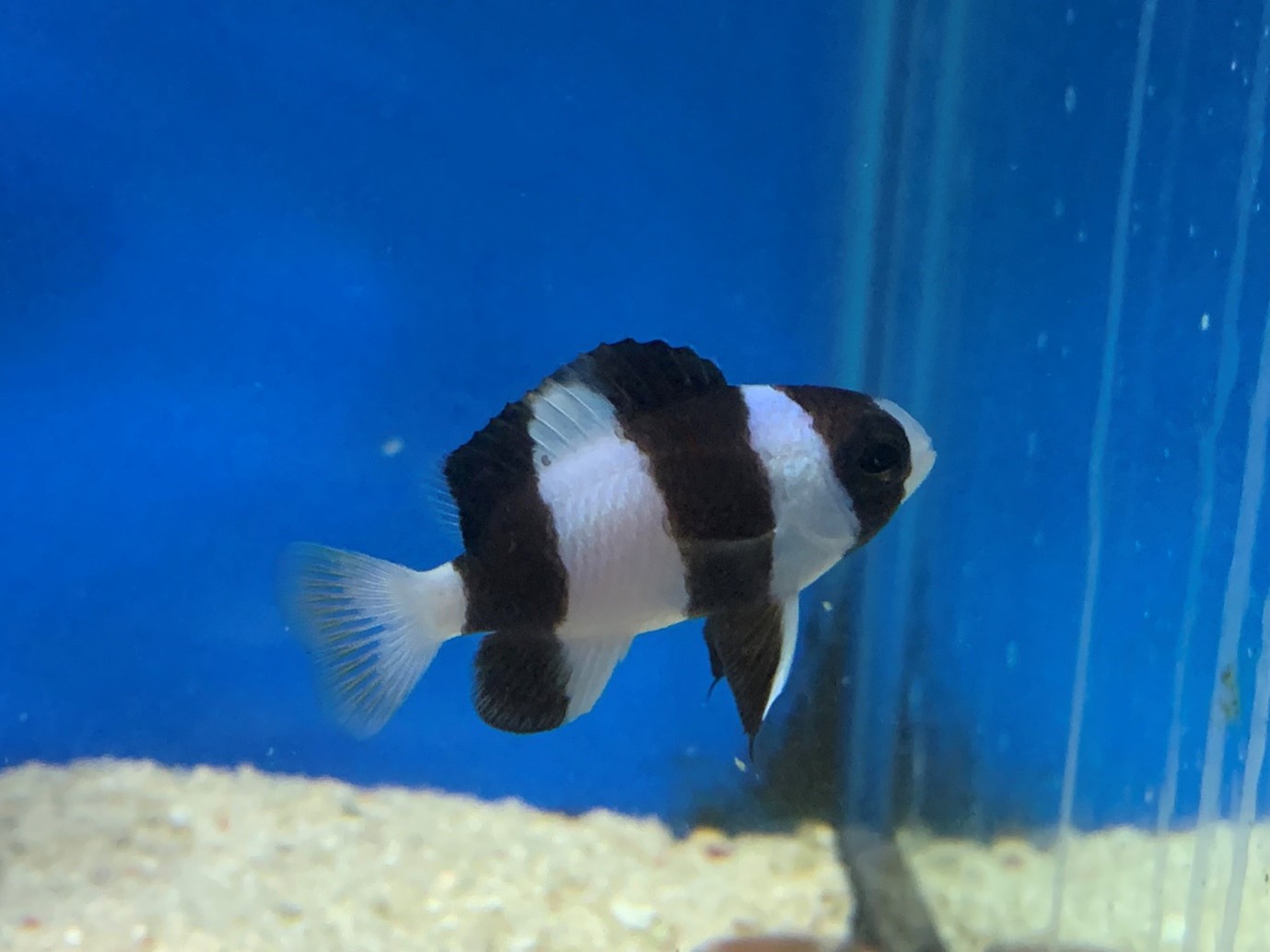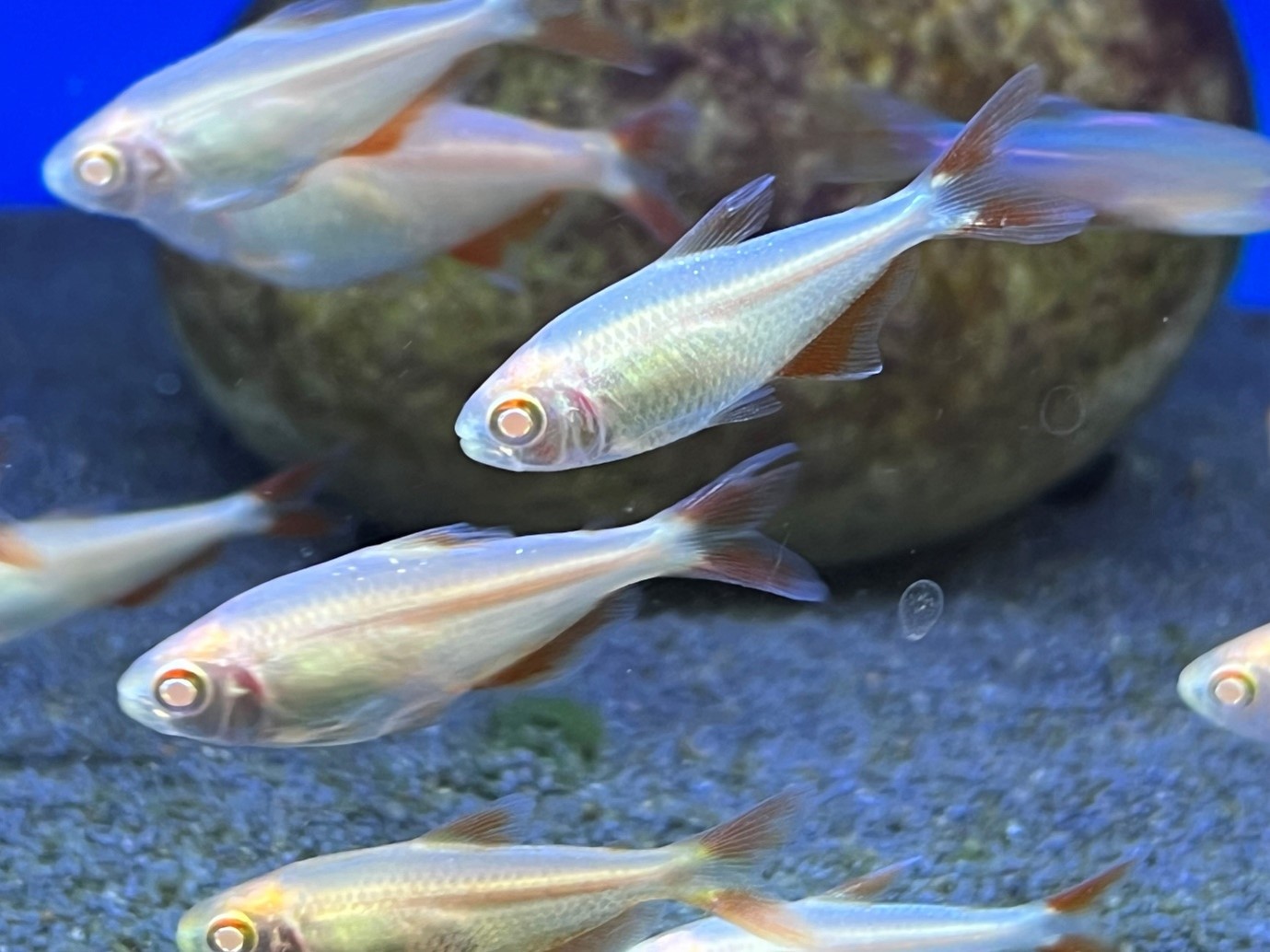What's in store - February 2024

L number plecs are an area of the hobby where you could easily spend many years and end up with a lot of aquaria. As their needs become more widely known and increasing numbers of dedicated hobbyists unlock the secrets to breeding them, it’s nice to see the fishes playing their part. This batch of Flash plecs (Panaqolus albivermis) are maturing and the males are starting to show the sparkling appearance of fine hair-like odontodes that grow longer and give them a fuzzy appearance. This batch were seen at our Reading store.
https://www.fishkeeper.co.uk/fish/freshwater/catfish/flash-plec-l204

Unlike their distant freshwater cousins, marine fish generally have quite complex gender issues. Many of them start life as one sex and transition with age, or even remain hermaphroditic like this handsome Tobacco Basslet (Serranus tabacarius) seen recently at our Leicester store. This has absolutely no impact on their aquarium care but can make choosing a name a little more difficult.
https://www.fishkeeper.co.uk/fish/marine/miscellaneous-fish/tobacco-basslet

Some aquarium fishes have been in the hobby for decades, often only revealing their identity years later when a better understanding of their wild relatives is discovered. Black mollies have been familiar to generations of fish keepers and vary in their hardiness. This is down to their ancestry, with the short-dorsal finned Lyretail black sphenops molly (Poecilia sphenops) being a freshwater species that excels at controlling blue-green algae in planted aquaria, whereas the sailfin forms need either a very high KH or the addition of salt to thrive, thanks to their brackish ancestors. In truth, most domesticated livebearers are hybrids and it’s now known that the Sphenops molly has some close relatives that could have contributed to the fish that we see today. This batch of merry algae-munchers were seen at our Shrewsbury store.
https://www.fishkeeper.co.uk/fish/freshwater/livebearers/molly-

It’s a safe bet to assume that any black and white banded damselfish you see are going to be a source of aggro but they’re not all equally aggressive. In contrast to the thuggish Dascyllus humbugs, the Fijian panda damsel (Amblypomacentrus tricinctus) is a far more reasonable rarity that can coexist with a range of fishes and invertebrates. This adorable youngster was seen at Reefkeeper Moss End.
https://www.fishkeeper.co.uk/fish/marine/damselfish/fijian-panda-damselfish

Tetras are a rather diverse bunch of fishes that are generally thought of as tiny community fishes that can be rather bite-sized and unsuitable for larger communities of fish. One of the old standbys of the hobby is rather different to this stereotype and these Albino Buenos Aires tetras (Psalidodon anisitsi) are perfect company for larger species that aren’t especially predatory. Not only are these agile tetras capable of out-maneuvering large cichlids, their ancestral range means they’re adapted to temperatures that make them suitable for cool aquaria too.
https://www.fishkeeper.co.uk/fish/freshwater/characins/buenos-aires-tetra-


